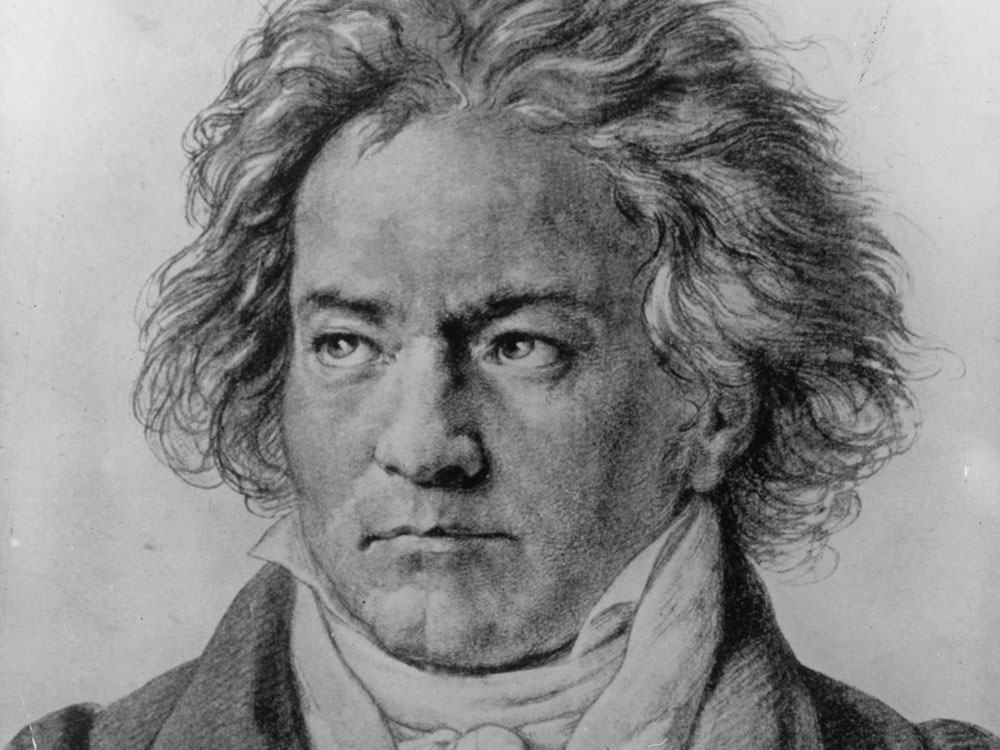By Rich Lowry
December 25, 2013

In a season of joy, it is worth dwelling on and marveling at the world’s anthem of joy, arguably the best piece of music ever written, which hasn’t lost its power to astound after nearly 200 years and, as long as there is such a thing as civilization, never will.
It is, of course, Beethoven’s Ninth Symphony.
Everyone knows the unforgettable melody of its “Ode to Joy,” the fourth movement that sets to music a poem by Friedrich Schiller. Performances of the symphony always feel like an event.
When the Berlin Wall fell, it was natural that Leonard Bernstein turned to the Ninth at the celebration.
The man who gave us this hymn of affirmation and possibility could be nasty and arrogant. But he was a towering musical genius who left to posterity incalculable gifts.
Music historian Paul Lang says of Beethoven that “there is still no department of music that does not owe him its very soul.” The great composer would have expected as much.
In all of his letters, Mozart never referred to himself as an artist. Beethoven considered himself an artist with a capital “A.” He evangelized for the importance of music in general and himself in particular.
Listening to his work, it is hard not to conclude that he got his place in the firmament exactly right.
Beethoven began composing the Ninth in 1818, when he was already deaf, but had thought about setting Schiller’s poem to music as far back as the early 1790s. The symphony premiered in Vienna in 1824.
The story goes that Beethoven was on stage beating the time and, with his back to the audience, couldn’t hear the applause. A singer turned him around so he could see the rapturous reaction.
The first three movements are brilliant enough — shimmering to life from nothingness at the beginning in what has been compared to the Creation story, then delivering crashing drama — but the fourth is a revelation. Soaring and haunting, it builds toward the entry of the baritone soloist: “O friends, not these tones. But rather, let us strike up more pleasant and more joyful ones.”
A chorus erupts, singing “Joy! Joy!” The singers praise “joy, beautiful spark of divinity” and tell of how “all mankind become brothers,” and exult, “Be embraced you millions/This kiss goes to the whole world.”
These sentiments, uncontroversial if not banal today, had a political point. Dismayed by the ascendancy of reaction in Europe, Beethoven meant the symphony to be an enduring expression of his faith in democracy and the brotherhood of man.
But it is more than that.
“Joy is beautiful because it provides harmony,” Schiller wrote of his poem. “It is ‘god-descended’ because all harmony is derived from the Master of Worlds and flows back to him.”
The ode declares, “Brothers — above the starry canopy/A beloved father must surely dwell.” Beethoven biographer Lewis Lockwood notes how the composer brought the religious message to the fore “as part of the great synthesis in which humanity’s ideal state can be found only by reaching toward the heavens to find God.”
It is a testament to Beethoven’s achievement that his masterpiece is familiar to the point of ubiquity — the anthem of the European Union no less — yet still vital.
A new documentary, “Following the Ninth,” traces its impact on people around the world. A few months ago, “60 Minutes” did a segment on a plucky, against-the-odds symphony orchestra in the desperately poor Congo.
Its rendition of the “Ninth” is ragged, but heartfelt and as moving as anything ever performed in Vienna.
The music historian Harold Schonberg writes of the Ninth Symphony, “The music is not pretty or even attractive. It is merely sublime.”
The Ode to Joy asks, “Do you sense the Creator, World?” It is the miracle of the Ninth that, at the height of its power, it almost compels the listener to answer “Yes!”
Photo: Getty Images
No comments:
Post a Comment